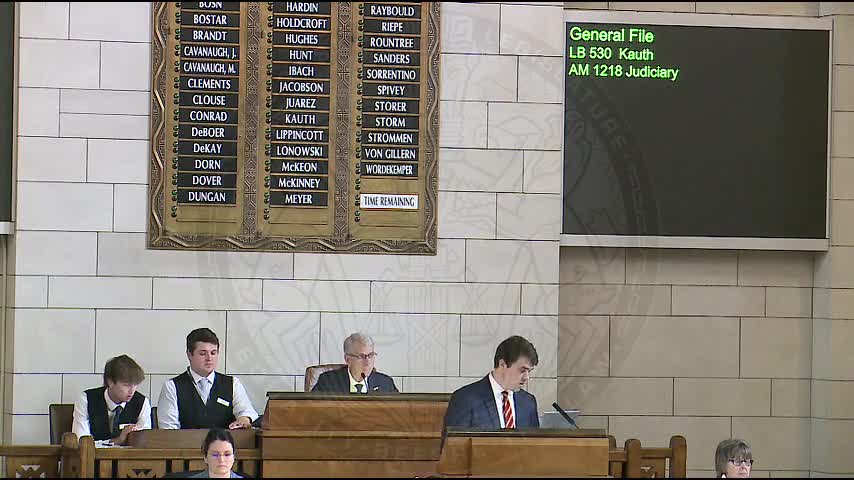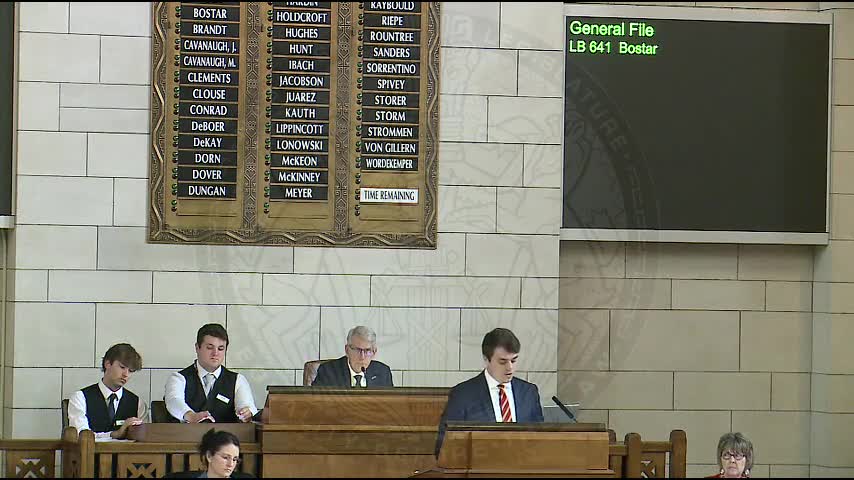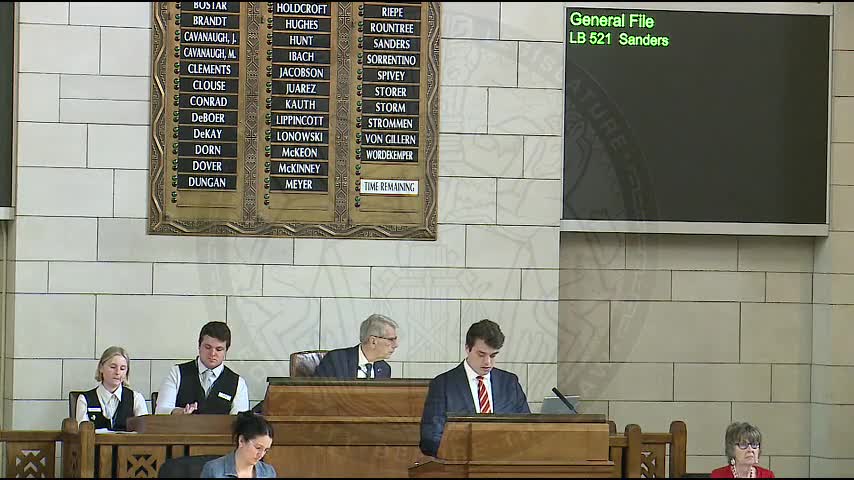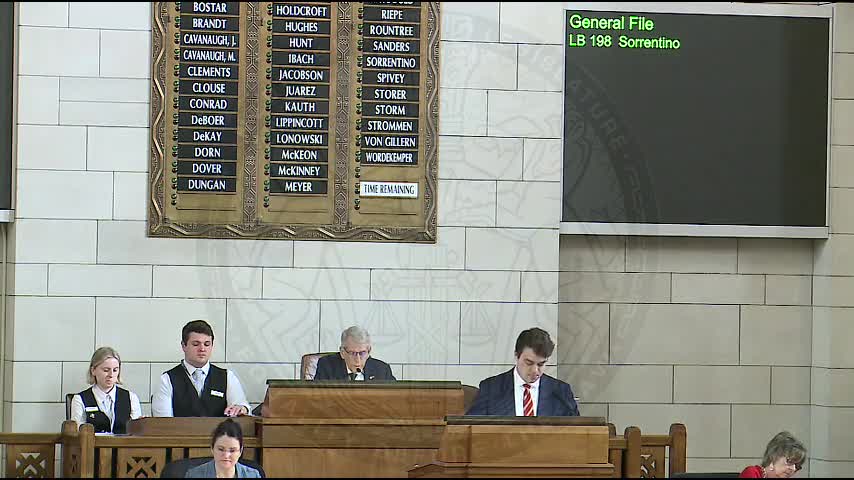Article not found
This article is no longer available. But don't worry—we've gathered other articles that discuss the same topic.

Senate trims and tests juvenile-justice provisions in broader public-safety bill after floor fights

Senate narrows Medicaid estate-recovery rules, adds physician attestation and caregiver protections in LB641

Senate adopts broad elections update including petition and ballot rules, advances LB521

